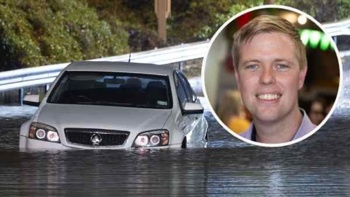Trials of a pilotless, electric air taxi could soon begin near Christchurch, with an American startup gaining backing from the Crown.
The Government has signed a memorandum of understanding with Wisk to support "a world-first passenger transport trial of the company's all-electric, self-flying air taxi "Cora" in Canterbury," Research, Science and Innovation Minister Megan Woods said.
Wisk is a joint venture between Boeing and Kitty Hawk - the latter bankrolled by Google co-founder and multi-billionaire Larry Page.
The startup - which has its corporate headquarters in Mountain View, California - first set up an outpost in Canterbury in 2017, attracted by the relatively empty skies, and the Civil Aviation Authority's reputation for being relatively open to drones and other un-manned aerial vehicles.
Air New Zealand joined the party in 2018, signing a collaboration deal with Wisk (then trading as Zepher Airworks).
/arc-anglerfish-syd-prod-nzme.s3.amazonaws.com/public/CXFA4QIXKFAURKG7WTFND2FU4A.jpg?width=511&height=383&mode=max)
Cora's all-electric, self-flying taxi can fly at up to 180km/h, has a range of up to 100km and vertical take-off and landing capability. Photo / Supplied
Around the same time, Boeing was brought on as Wisk's first major outside investor - in a deal that gave Wisk manufacturing ability, plus the wherewithal to overcome a number of reported technical snags.
There have already been hundreds of hours of test flights, but the company is still waiting on CAA certification for trials involving passengers.
The company is hoping for commercial launch within four years.
The Cora could, for example, fly passengers from Auckland Airport to the city's CBD, thanks to its vertical takeoff and landing ability, Wisk's then-CEO Fred Reid told the Herald as the Air NZ hookup was announced.
Wisk also sees potential for short-hop tourist flights.
The prototype being tested in Canterbury can hold two passengers and travel 100km at up to 180km/h on a charge. It has been under development since 2010.
/arc-anglerfish-syd-prod-nzme.s3.amazonaws.com/public/VNFFDLFK3RH7NIJ43GCWZXCI44.jpg)
Wisk's Cora, which has been under development since 2010, is currently being tested at a private airport near Christchurch. Photo / Supplied.
In October last year, our Government announced that it was establishing an industry-wide Airspace Integration Trial to work with "leading, innovative domestic and international industry partners to safely test and demonstrate unmanned aircraft".
Wisk is the first industry partner to join this programme.
The company's CEO Gary Gysin said in a statement, "We are delighted to now have a signed agreement with the New Zealand Government, which will propel Cora's entry to the air taxi market. We see this agreement as a sign of confidence in our product and abilities to develop and deliver a safe and reliable air taxi service, starting in New Zealand."
Wisk faces competition from Uber, which recently revealed it has partnered with Hyundai on a self-flying taxi project. The rideshare giant hopes to begin trials in Melbourne, Dallas and Los Angeles from 2023.
Take your Radio, Podcasts and Music with you









